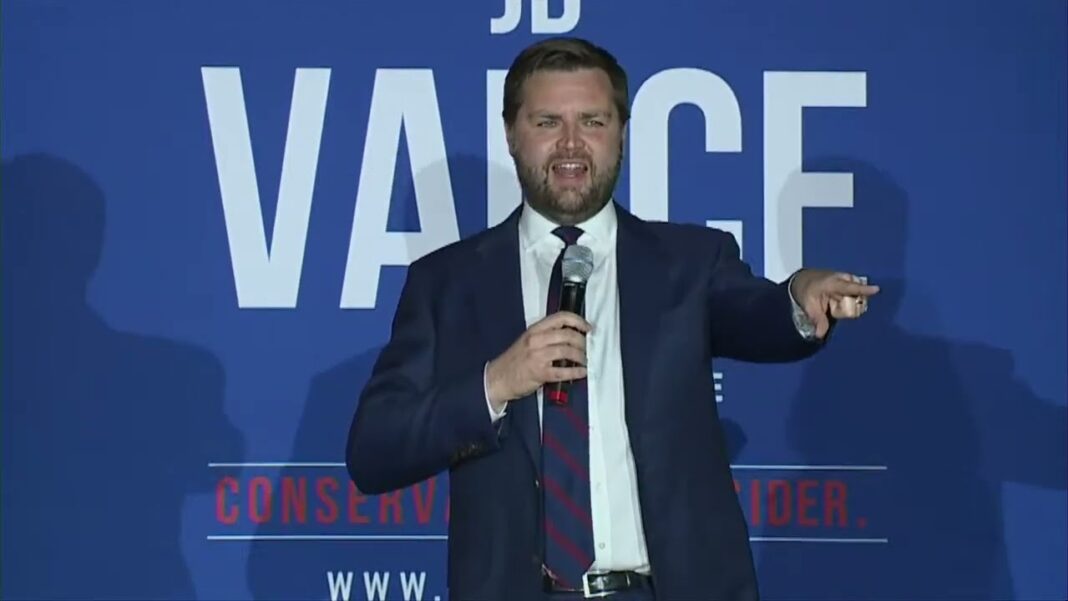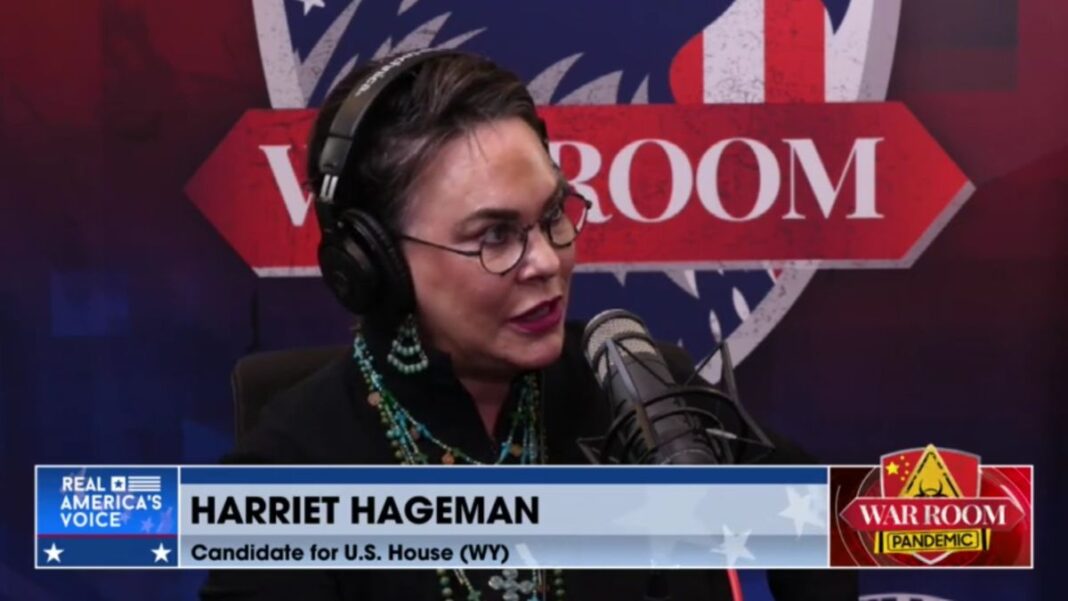The debt ceiling fight continues in Washington, more than a week after the U.S. hit its legislated debt limit of $31.4 trillion.
“The Treasury Department has hit the federal borrowing limit at $31.4 trillion, and they’re going to be able to use cash-management techniques to be able to extend what we call the ‘X date’ of when they’re going to ask for the debt limit to actually be raised, somewhere until later in the summer,” says Matthew Dickerson, senior adviser on budget policy at The Heritage Foundation. (The Daily Signal is the news outlet of The Heritage Foundation.)
“So, the negotiations are starting between Congress and the White House to figure out what are the spending reforms, what are the pro-growth policies that we’re going to implement and pair that with the debt limit increase so that we can put the country on a path to a more prosperous future,” he said.
Dickerson joins “The Daily Signal Podcast” to further discuss the latest on the debt ceiling debate, whether the U.S. has ever defaulted on its debt before, and a bill recently introduced by 43 House Democrats to eliminate the debt limit entirely.
Listen to the podcast below or read the lightly edited transcript:
Samantha Aschieris: Matthew Dickerson is joining today’s show. He is a senior policy adviser of budget policy in the Grover M. Hermann Center for the Federal Budget here at The Heritage Foundation. Matt, thanks so much for joining us.
Matt Dickerson: Thanks for having me on.
Aschieris: Yeah, of course. Now, here in Washington, the debt ceiling fight continues. America has already reached its debt limit of $31.4 trillion, and that was on Jan. 19. So, Matt, first and foremost, what’s the latest on this?
Dickerson: That’s right. The Treasury Department has hit the federal borrowing limit at $31.4 trillion. And they’re going to be able to use cash-management techniques to be able to extend what we call the “X date” of when they’re going to ask for the debt limit to actually be raised, somewhere until later in the summer.
So the negotiations are starting between Congress and the White House to figure out what are the spending reforms, what are the pro-growth policies that we’re going to implement and pair that with the debt limit increase so that we can put the country on a path to a more prosperous future.
Aschieris: And just speaking of the White House, my colleague, Virginia Allen, reports that they have said that President Joe Biden won’t negotiate over conditions for raising the national debt ceiling. On Wednesday, though, Sen. Rand Paul of Kentucky said the president absolutely will negotiate. So what are your thoughts on this? What’s at play here?
Dickerson: Absolutely. Just like everything in politics, this is a negotiation. An increase in the debt limit has to go through the House, the Senate, and get signed into law by the president. A bill is not going to be able to get passed unless it’s paired with some sort of spending reforms, as it has been going back for four decades on negotiations about the debt limit. So there will be a negotiation.
Vice President Biden, when he was in the White House, engaged in very significant negotiations with Speaker [John] Boehner in 2011, and I think a similar path is going to follow now.
Aschieris: We have some audio also from Virginia of remarks from Sen. Ted Cruz at a Wednesday press conference with five other GOP senators, and we’re going to go ahead and play that for you now.
Sen. Ted Cruz: There is one principle person in this town that is talking about a default in the debt, and that is Joe Biden. Joe Biden wants to threaten the default in the debt. He wants to scare the markets. And frankly, he’s counting on y’all.
He’s counting on the press corps just to repeat his talking points. He’s counting on the press corps just to say, “Those crazy Republicans want to default on the debt.” That is false. And if you write that in your stories, you are simply repeating partisan talking points from the White House. Historically, the debt ceiling has proven incredibly effective.
Aschieris: So two things from this I want to discuss. First, when Sen. Cruz talks about defaulting on the debt, what does that exactly mean? And what would the consequences be if this were to happen?
Dickerson: Yeah, so, what the senator is talking about is, if the Treasury doesn’t pay back the principle and interest on loans on Treasury bonds and bills—and frankly, that’s not going to happen. The Treasury is going to be collecting record revenues this year, and the Treasury has the ability to prioritize and pay its obligations for debt and the principle and interest on our debt payments. So there’s not going to be a default on our debt.
The Treasury may have to get to a situation, if the debt limit isn’t raised, where we’re simply not spending more than we take in. And at that point, other spending would not go out the door on time as it’s been promised, but we’re not going to default on our debt obligations.
Aschieris: Yeah. Has that ever happened before?
Dickerson: Not in a significant way. Actually, one time back in the ’70s, there was a computer error and some of it didn’t get paid. And there wasn’t a big, big market meltdown. It has happened before, but it’s not something that we want to have happen.
The global financial markets are built on Treasury debt. It’s a very safe asset because the United States is going to pay its obligations. But what we need to do is get to a situation where our federal budget is sustainable and so we’re not issuing debt that we’re not going to be able to meet our promises to pay it back.
Aschieris: Yeah. And the second thing that Sen. Cruz talks about that I want to get your thoughts on is the role of the media and the reporters who are covering the debt ceiling debate. What are your thoughts on what Sen. Cruz had to say about that?
Dickerson: I think it’s interesting, right? A lot of reporters may have not been around in the negotiations that were taking place in 2011 where both sides were talking.
President [Barack] Obama, Vice President Biden was negotiating with congressional Republicans, and they got to a deal that put us on a more sustainable fiscal path. And that happened in the ’90s. That happened in the ’80s on a bipartisan basis. And so there’s always been a negotiation about the debt limit. It’s served as a tool to put the country on a more sustainable fiscal path for decades, and that’s what we need to do this year.
Aschieris: Now, Matt, I also want to get your thoughts on something that we saw from House Democrats recently. They introduced a bill that would essentially do away with the debt ceiling entirely and allow Congress to borrow the money it needed to pay its bills. So first and foremost, what’s this all about?
Dickerson: Yeah, I think that just goes to show how radical the Left is, right? The debt limit is an indispensable tool that protects taxpayers. That’s why it was implemented in the first place. The Left, on the other hand, when we reached the $31.4 trillion debt limit, which should be a crazy wake-up call of how much we’re spending and how much is going out the door, their solution is to get rid of the spending cap and then continue spending, continue borrowing, continue the Federal Reserve’s money printing. That’s only going to push up inflationary pressures and hurt American families. And I think that’s just a crazy, crazy thing that we should be pointing out and doing the opposite.
Aschieris: Yeah, I mean, do Democrats really believe the government can just permanently borrow more money when everyday Americans can’t?
Dickerson: That seems to be their viewpoint, right? If you’ve seen their crazy economic theories of Modern Monetary Theory, which the government has been putting into practice over the last couple of years, and that’s resulted in inflation that we haven’t seen in this country in four decades. And so it’s totally a debunked economic theory.
And what we have seen is when government spending is controlled, when we have regulations that are restricted in a smart tax code, we have economic prosperity that’s broadly felt in this country. And that’s what we need to go back to.
Aschieris: Well, Matt, thanks so much for joining the show today. I always appreciate your insight. We’ll definitely have you back on as this debt ceiling debate continues. Thanks so much.
Dickerson: Great. Thank you.






